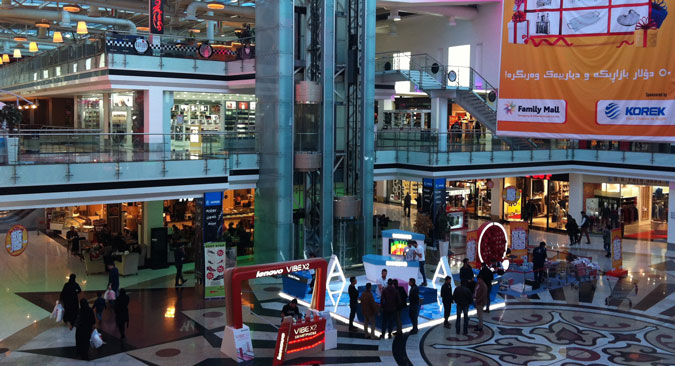Erbil – a photo

Hard to imagine who could have declared Erbil “Iraq’s Dubai”.
In theory, this is a capital city. The capital of Kurdistan, in the north, an autonomous region, with its own parliament and its own government – but it isn’t even a city: it’s just a senseless succession of buildings, short buildings, one-story, two-story, without any logic, in no order. Everything yellow, everything blanketed by sand. Under this flat sky, one warehouse after another spreading like that in all directions, for kilometres and kilometres, along streets that look like highways, three, five, six lanes, you can get around only by taxi, there’s no block fit for walking, here – just buildings, and buildings and buildings, strewn randomly like pick-up sticks. An endless stretch of cement. And Erbil has already a million and a half people. A one-story, a two-story house after the other, it will reach Pakistan.
And the first thing you are striked by are the Toyotas. The cars. Almost all the cars are Toyotas. All these white jeeps, often armoured, with tinted windows: they belong to the UN, the NGOs, the diplomats – they belong to the lords of the country. Since in the end, the Erbil of the Kurds is an ordinary city, a bit fifties in style, dinettes, formica furniture, plastic flowers: but now and then, standing out in the dusty air, you see the tower of a seven-star hotel: it is the Erbil of those in charge. This is the safer part of Iraq. And so all foreigners are based here. At Manhattan prices, at four euro per cappuccino. Behind these concrete walls, barbed wire, video surveillance systems, security guards with AK47s over their shoulders, bomb-sniffing dogs – before entering, you get searched twice. The door opens, finally, and there is a pianist playing, a girl twirls, in her traditional dress, and offers you sweets. Of course, they say they live here for security reasons. There’s everything inside, there is a café, there is a barbershop, a store with cashemere sweaters, there is the gym, the spa. You can stay inside. You can stay safe.
You could also have stayed in Rome, honestly. And you would have been even safer.
Erbil actually has a city center. A citadel, on a sort of hilltop, with a sprawling field, fountains: and the souk all around. A real city center. I mean, from when cities still were built like Baghdad, like Damascus, Cairo – not like Erbil: like when we handed down to posterity arched acqueducts, rather than orbital roads. But if you say “to the city center”, a taxi driver won’t take you to the citadel, he’ll take you to the Family Mall: to the shopping center. Because in the end, sadly, that’s what society is today here. With these malls that all look the same, with the same shops, and all the shops with the same stuff, and the ready-made cheesecakes, and the Nutella crepes – the toy train on the ground floor, the glass elevator, popcorn and balloons and a girl at the entrance who brushes you with blush and spritzes a sample of perfume. Then you venture into a bathroom, and there’s no water.
Because that’s what the Middle East is today: all resources invested into appearance. And all resources invested into trade, or construction. Into material goods. Into this battered simulacrum of the West. You wander, and wander and wander, and never come across an art gallery, a theater, a cinema, in these cities that are but spots of cement – conceived not for living in, but for staying in. Not for being citizens: but individuals.
Foreigners who can’t afford a pianist in the dining room live in the Christian, or, better, the Assyrian neighborhood, protected by a giant Virgin Mary. Ankawa. And even though Erbil has no center, Ankawa is farther from the center than everything else, it’s next to the airport: it’s ready to escape: it’s a world on its own. The Kurds have organized everything, fulfilled every wish and need of their well-off Western customers: the fake Starbucks, the fake McDonald’s, couches and water pipes, the Lavazza café and the Mexican restaurant. There is everything. The beauty parlor, the gym. Plasma TV and smartphones.
There’s everything but a bookstore. Nobody asked for one.
Francesca’s new book, Syrian Dust, will be released in the US in September by Seven Stories Press